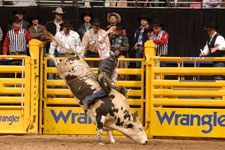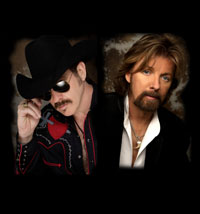I just received one of the myriad Nashville-based promotional email newsletters which arrive daily and this one made a unique claim for an artist: "The featured article is on XXX XXXXX, who is a Myspace country star with over 3 million visitors to her page and has just signed a recording contract with a major independent, XXX XXXX Records."
Huh? Myspace star? Page visitors? "Major" independent?
A&O has a lot of "visitors" to Mike's and my blogs, to
albrightandomalley.com, to my Myspace, Facebook and Linkedin pages and we do daily emails to clients, so I think we're pretty web savvy since we get lots of responses to all of these and yet I've never thought of myself as a web star, which to me means that not only do people view your page but it creates measureable buzz and impacts the culture in ways which are felt by even non-internet users.
Matt Drudge is a web star, for example.
In music, just because even lots of people know your name doesn't make you a star. You need to have some hits, which drive people to attend your concerts and turn up the radio when they come on.
Ideally, a "hit" is undeniable. It penetrates successfully in all avenues. It gets exposed nationally on the radio so at least 75% of the population is familiar with it.
Listeners begin to respond to it by calling and emailing air personalities about it after early radio, video channel and online spins.
National monitored charts measure that airplay, and it ranks in at least the top 40 on a consistent basis, showing 6-8 weeks of upward momentum so that it ranks in the top 20, which means that finally a majority of the monitored stations are starting to play it. Then, it starts to sell ($$!) in all the download outlets to the point that it ranks high in the web measurement tools (these are the "singles" of today). It starts to be called "a favorite song" by at least 35% of radio listeners in both local and national callout and online music research and it has at the very least 65% total positives by station fans. It ranks top 15 on the national radio airplay charts. Next, it becomes the title of an album which probably needs to contain at least three such songs unless the first song is a blockbuster. The LP sells at brick and mortar retail and ranks high in the scanned sales charts (still the high profit margin sales location).
A wannabe "star" has hits. But, for me, they aren't a star as yet. Star status comes with touring, performing in concert, drawing and entertaining crowds.
A
"C" star can draw 500 people in venues anywhere they perform across North America. Get get some TV and print media exposure too as a result of this. A
"B" star's name shows up on the national entertainment TV programs and magazines, has between three and seven radio hits and their name alone makes it easier for stations to put their music on the air because enough listeners know the name and like the past music that that're interested in hearing it. A "B" star can draw 2,000 people on the power of their name in live appearances. An
"A" star can draw 10,000 people, gets top billing on marquees, TV video channels and shows up at the top of net buzz metric tools, TV entertainment shows and on the cover of gossip magazines, has at least seven "hit" songs which have gotton so popular that they get played at least five times a week on country radio nationally.
Stars have hits, and I don't just mean hits on their web page.In this challenging world, why any company aspires to be a "label" escapes me. Major labels are struggling to hold onto existing but declining revenues as their historic distribution and retail model has been disintegrating.
The "star" now has a direct relationship with their "fans" and is able to sell ($$) their creative output to an even larger audience than ever.
James William Buffett wrote the book on this.
To maintain market share in this challenging financial environment where it's a lot easier to spend money than it is to make it, the major labels have consolidated, making it harder than ever for an artist to get signed by a major label.
I checked the national monitored charts this morning and here are the labels which seem to have earned the term "major" due to the number of songs they have in the top 30:
Arista - 5, Lyric Street and MCA - 3, Asylum-Curb/Curb, RCA, BBR, and Warner Bros. Nashville - 2.
The ones I'd call "major independents," since they have one song in the Top 30 this week: Big Machine, BNA, Capitol Nashville, Columbia Nashville, Mercury, Pearl/Big Machine, Show Dog, ERC/Mercury and Midas.
Where does that leave an artist who signs to any independent?
.. with an expensive PR and promotion team and, unless your indie label is owned by Mike Curb, Disney, Toby Keith, Benny Brown, Ron Clapper or run by Scott Borchetta, I fear, still
on the outside looking in.

























